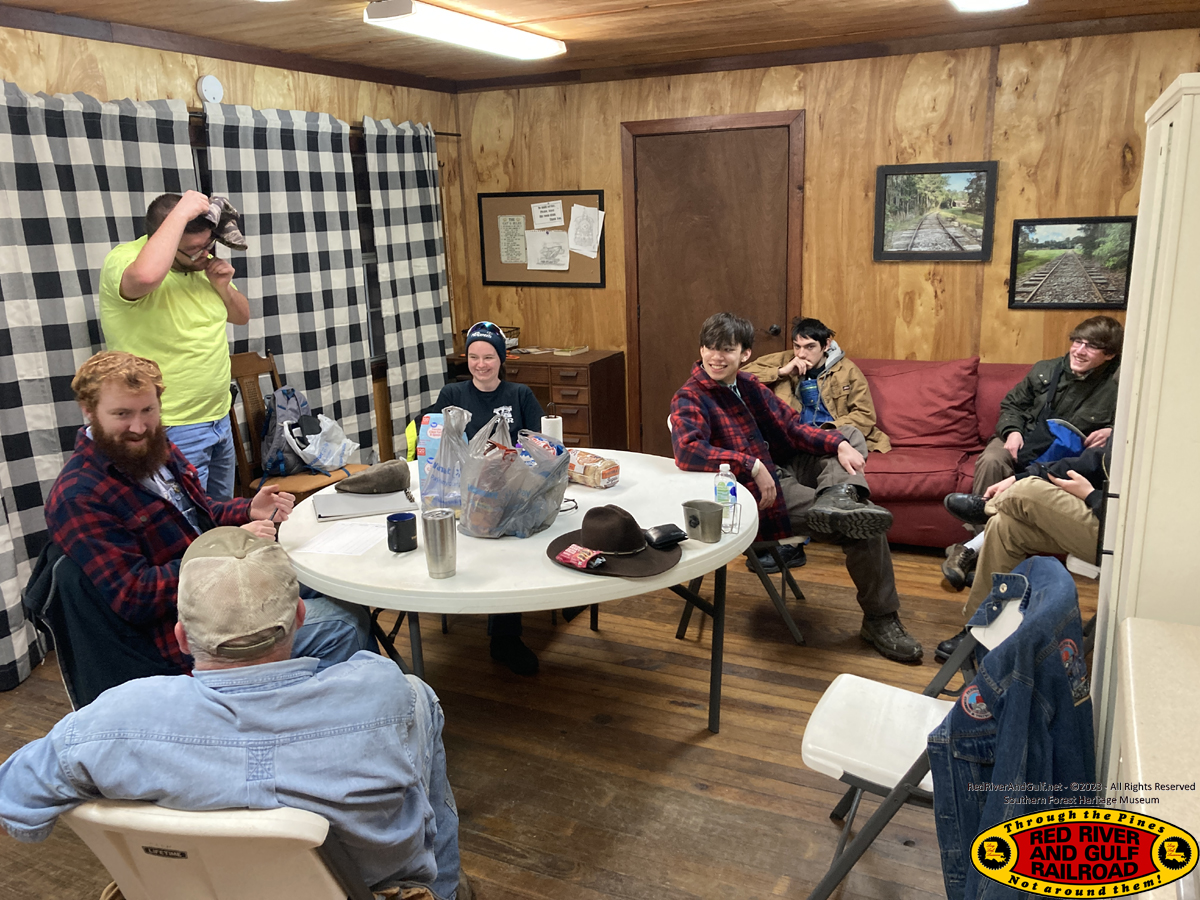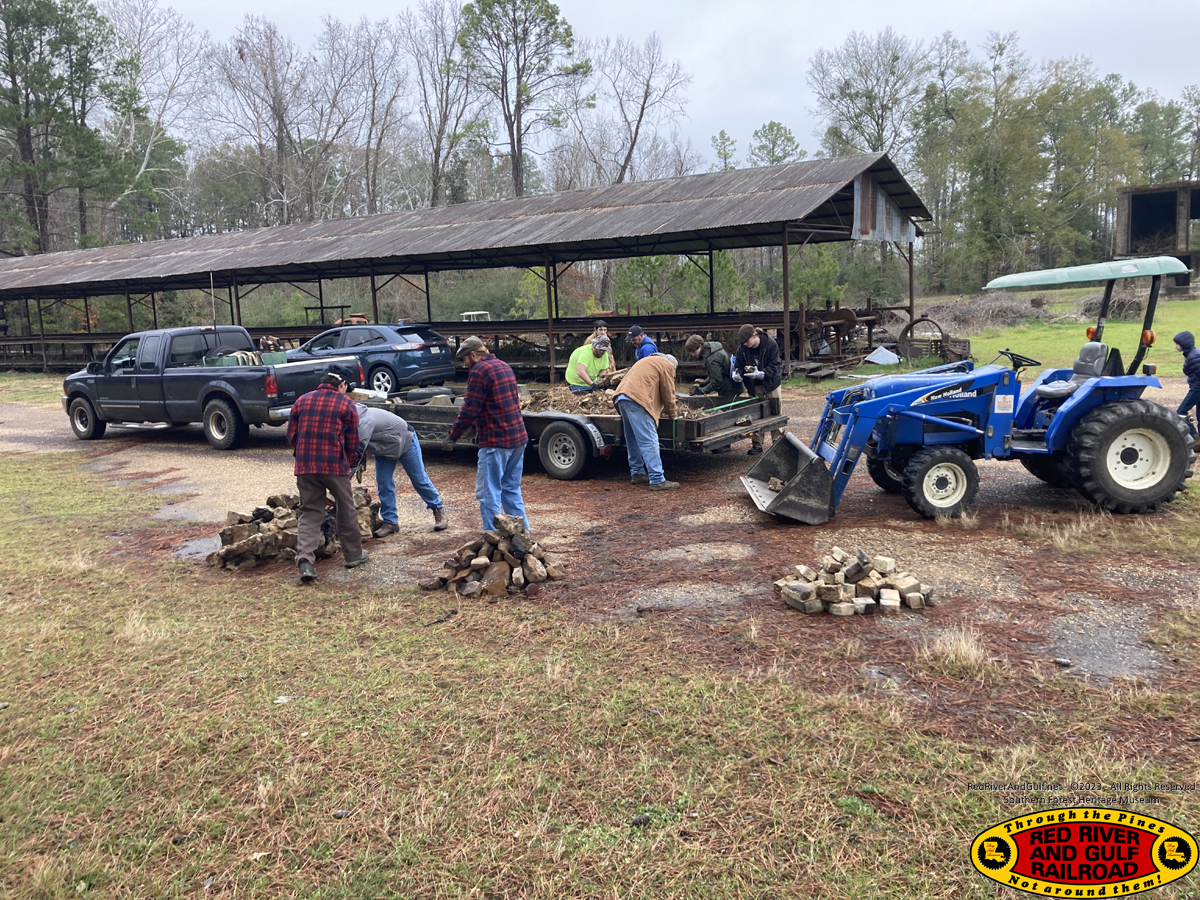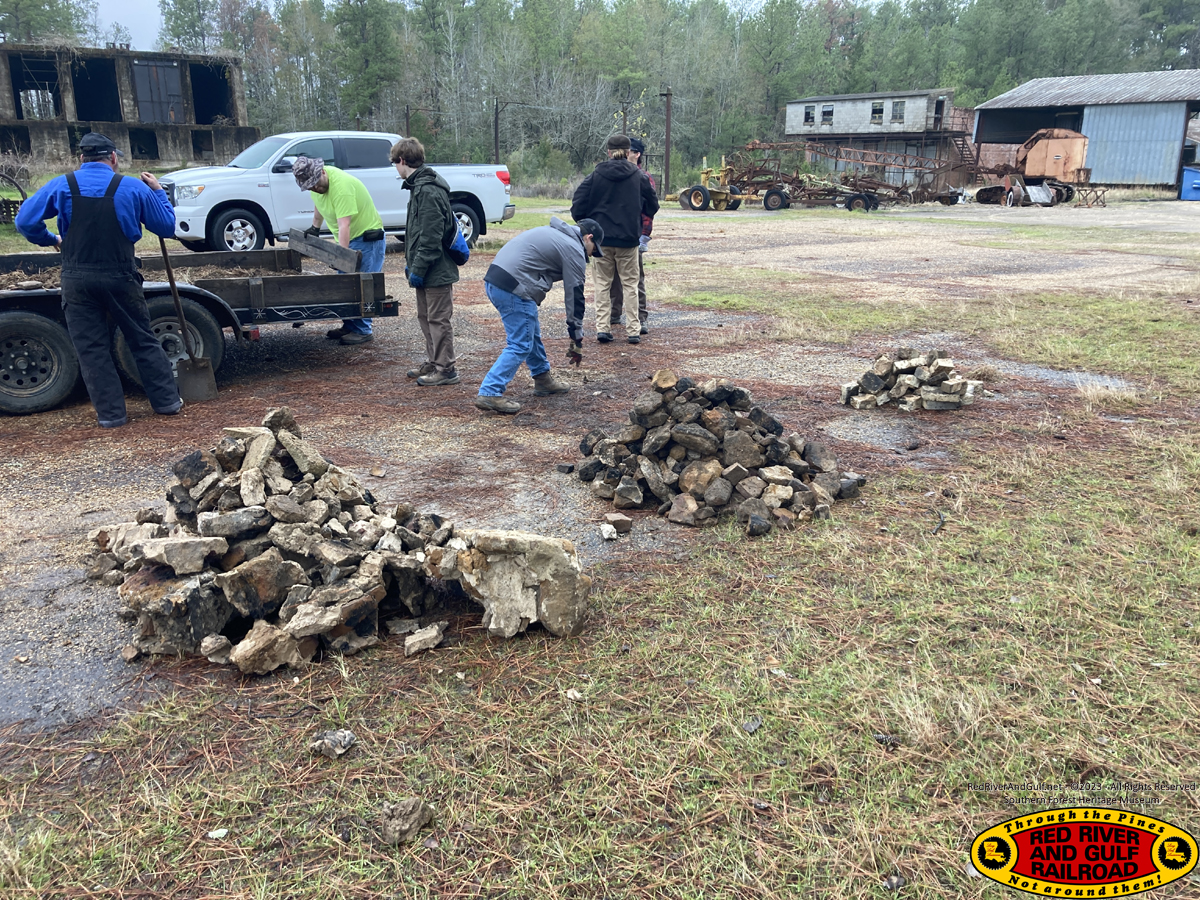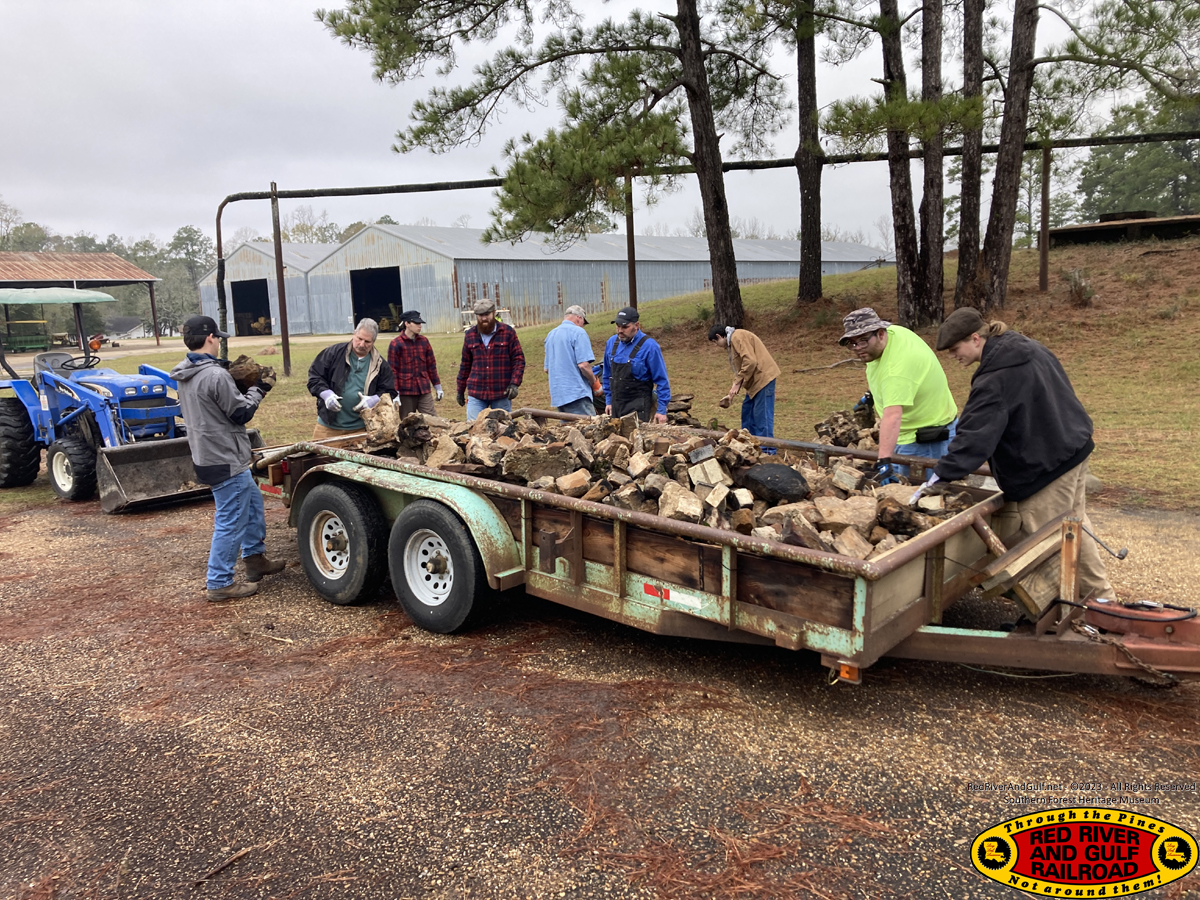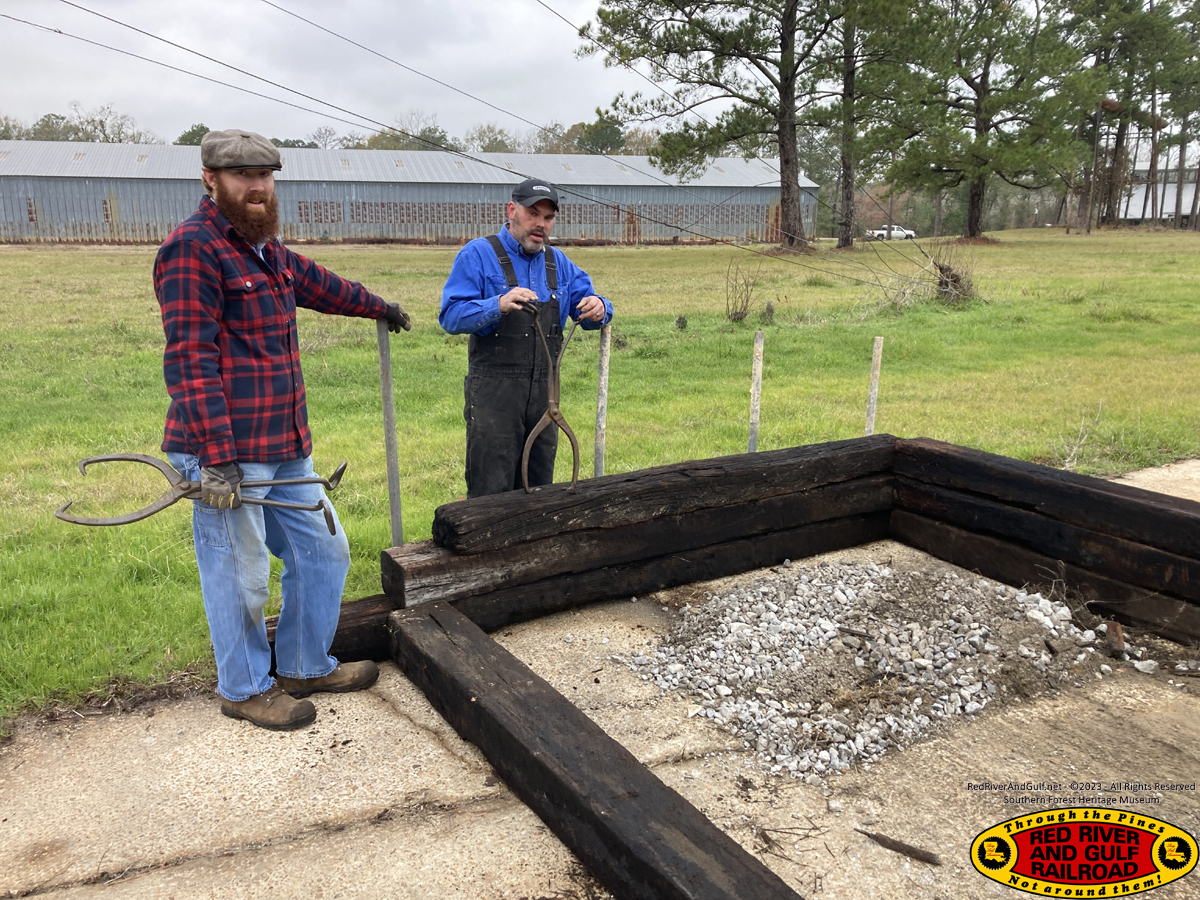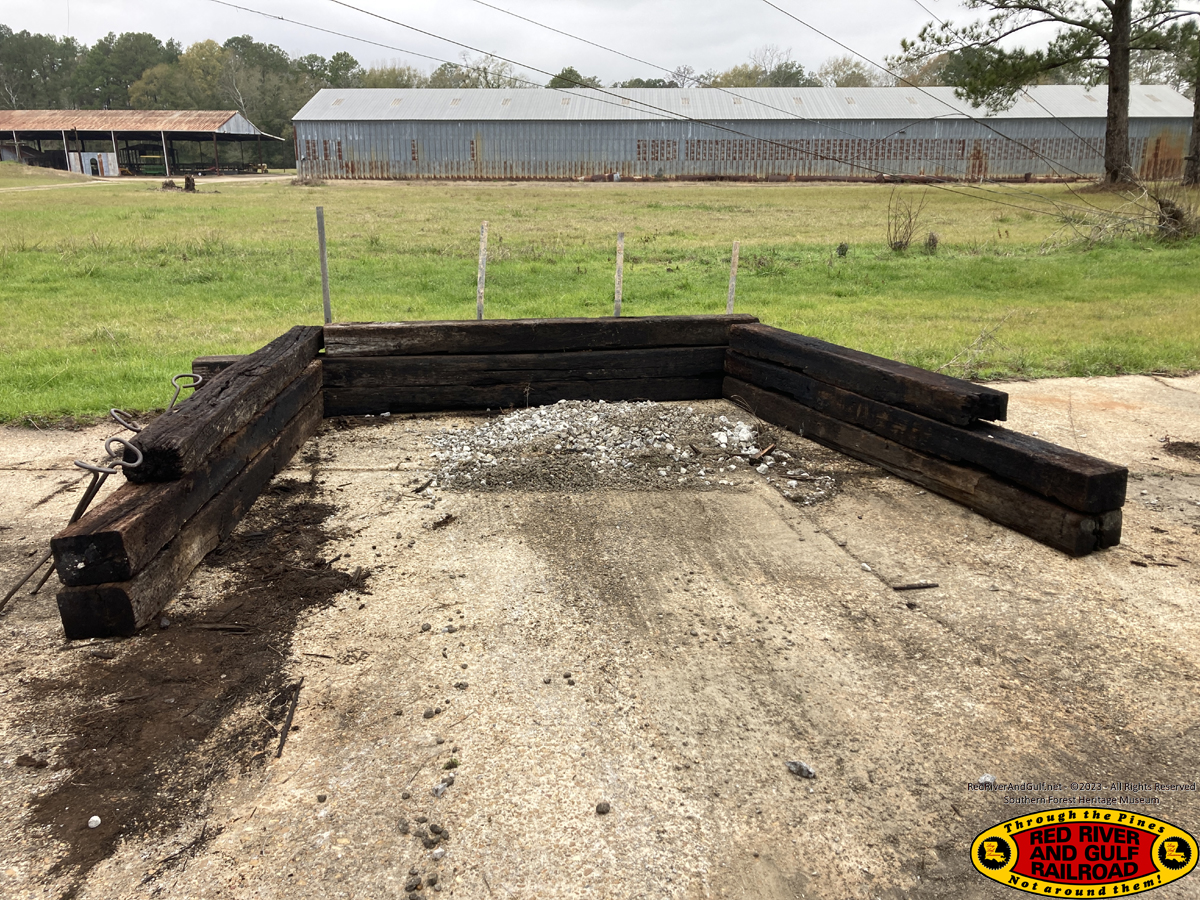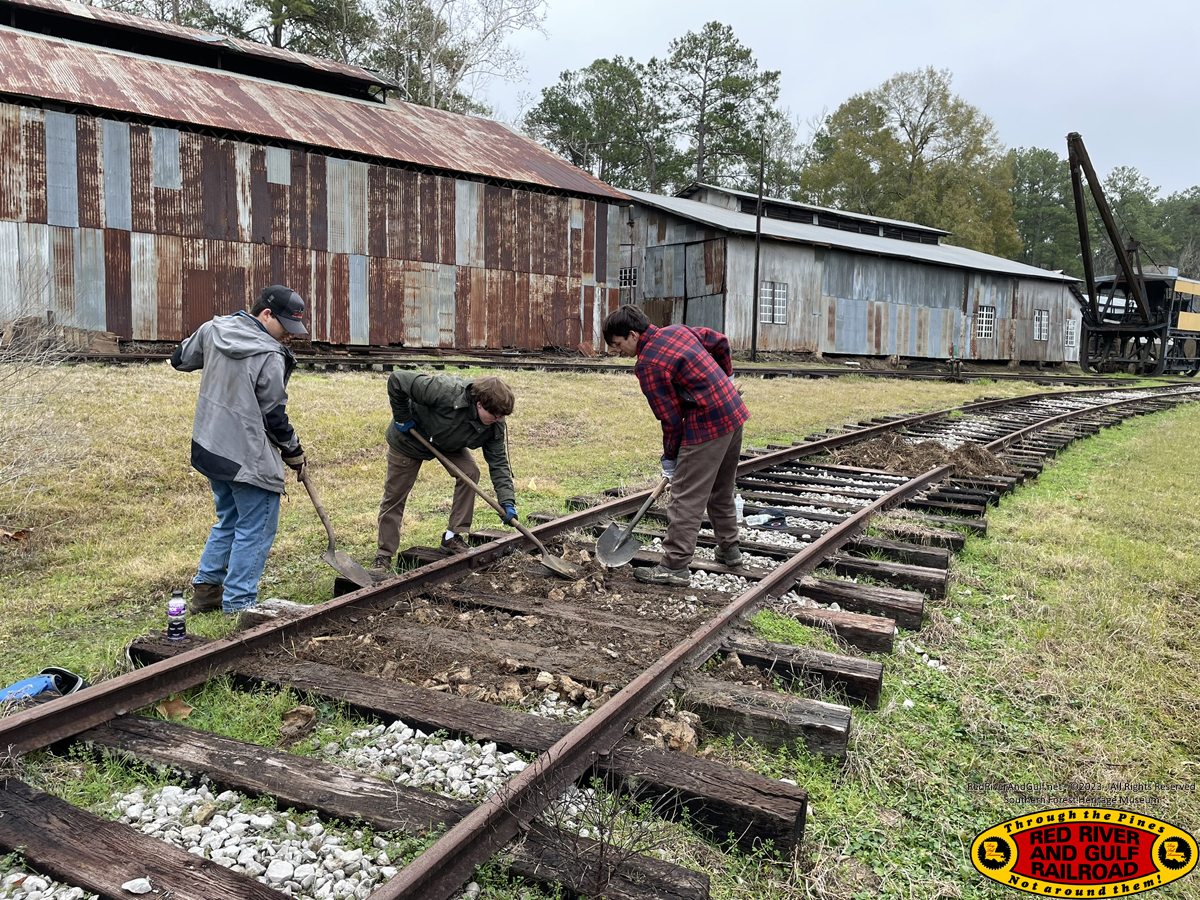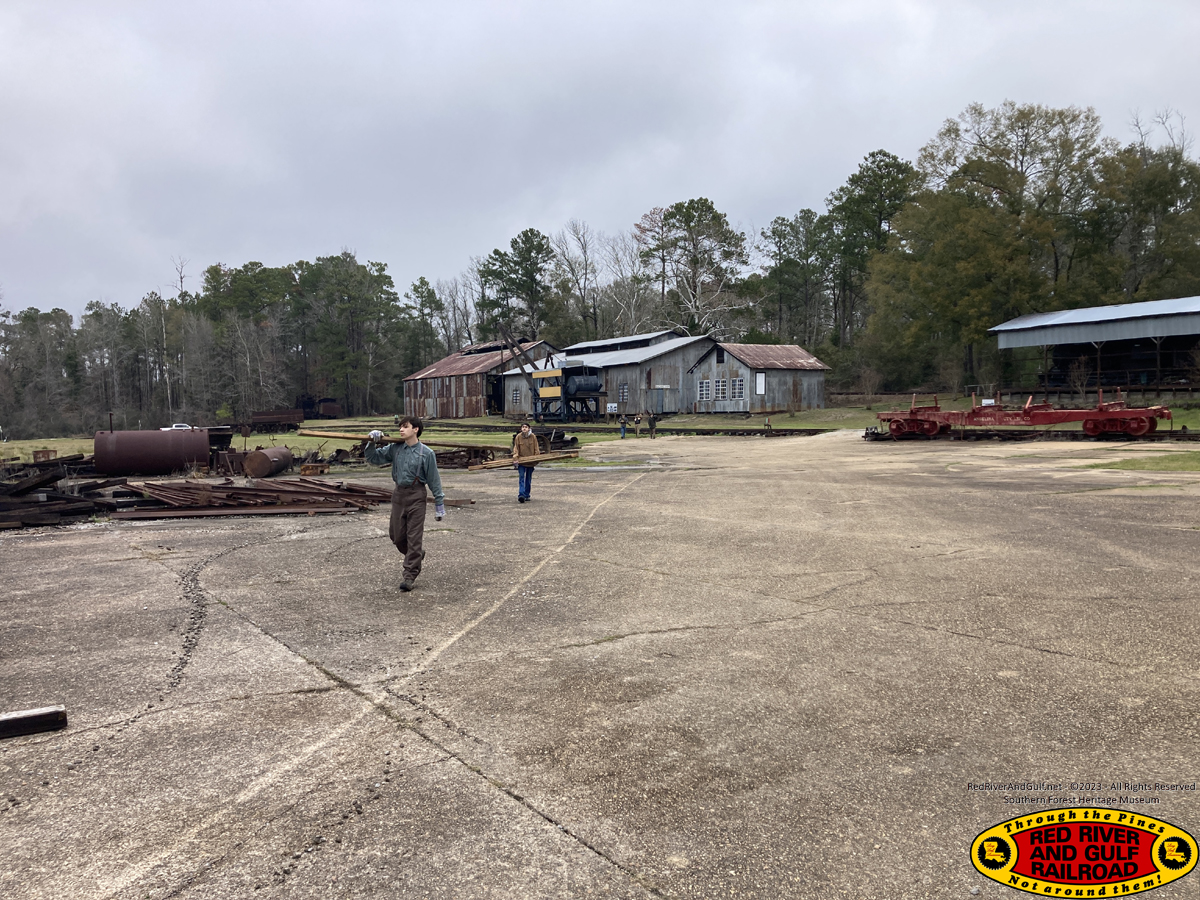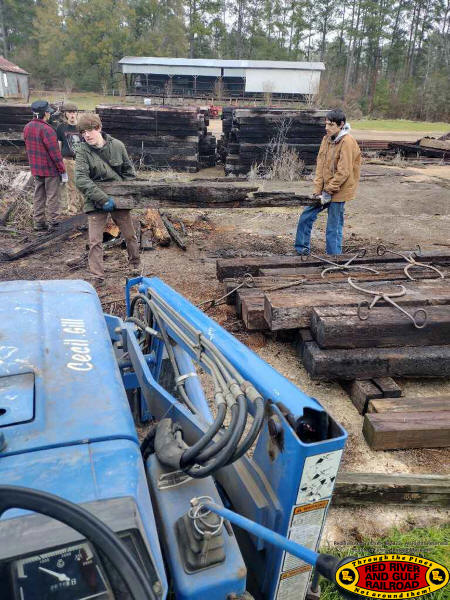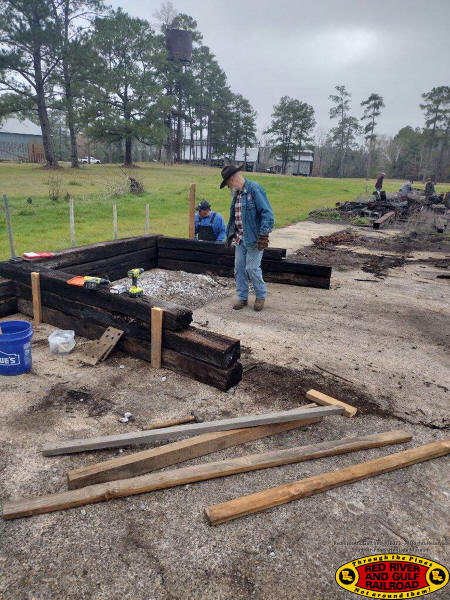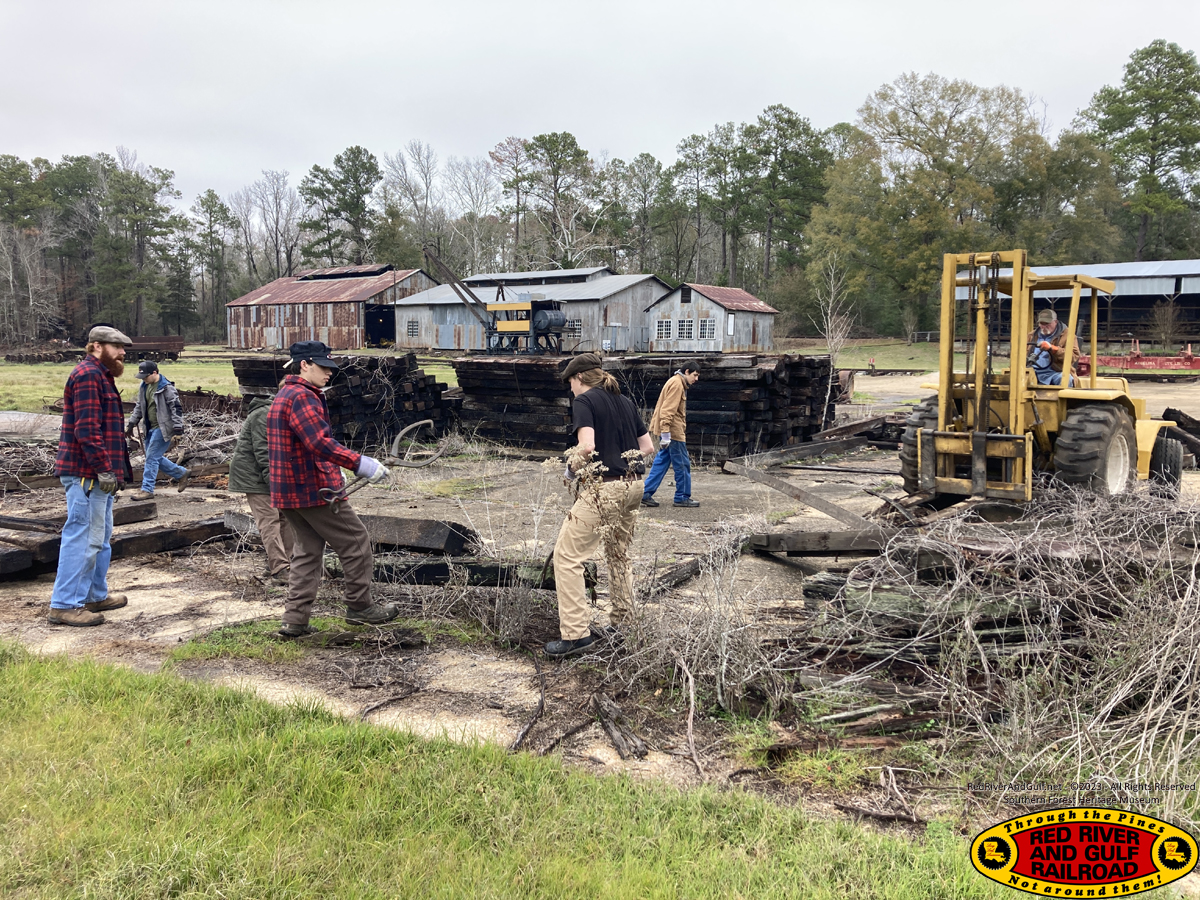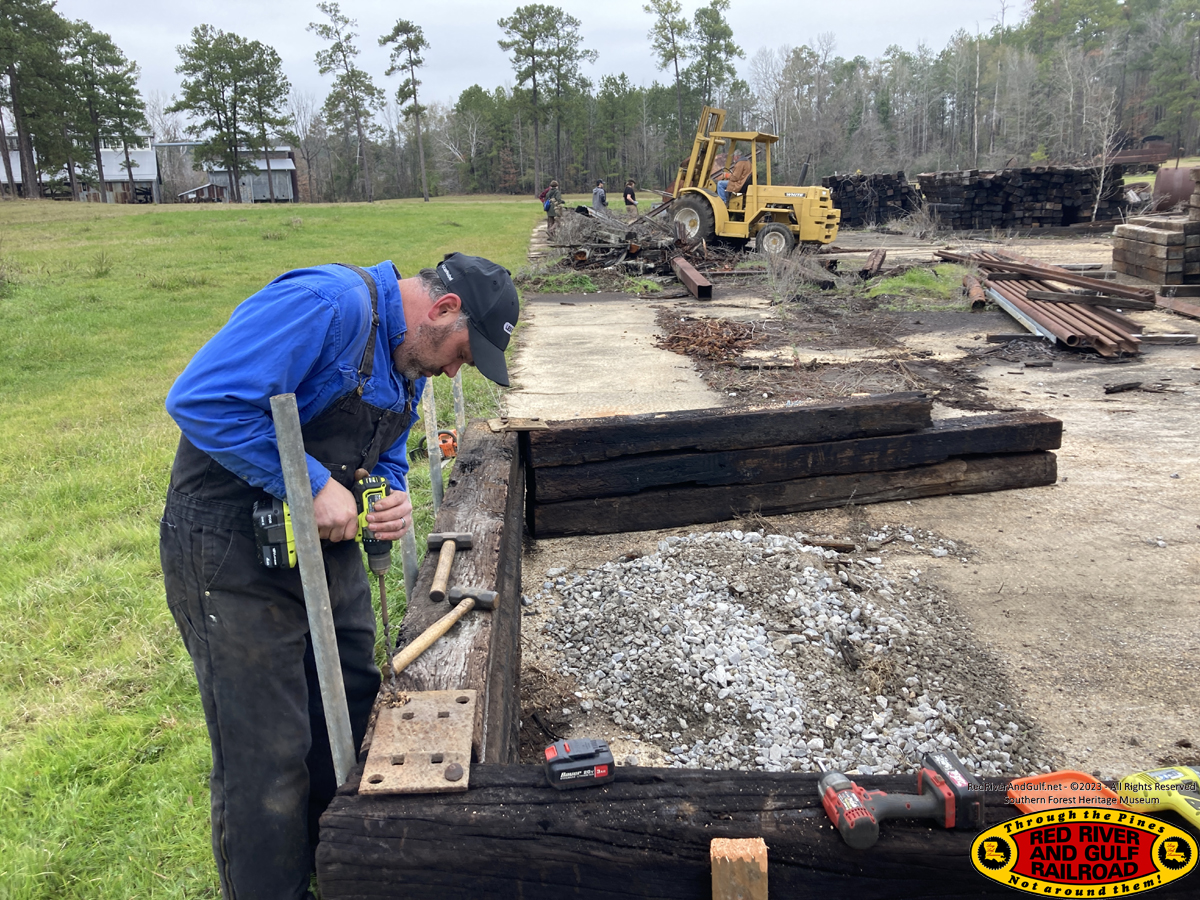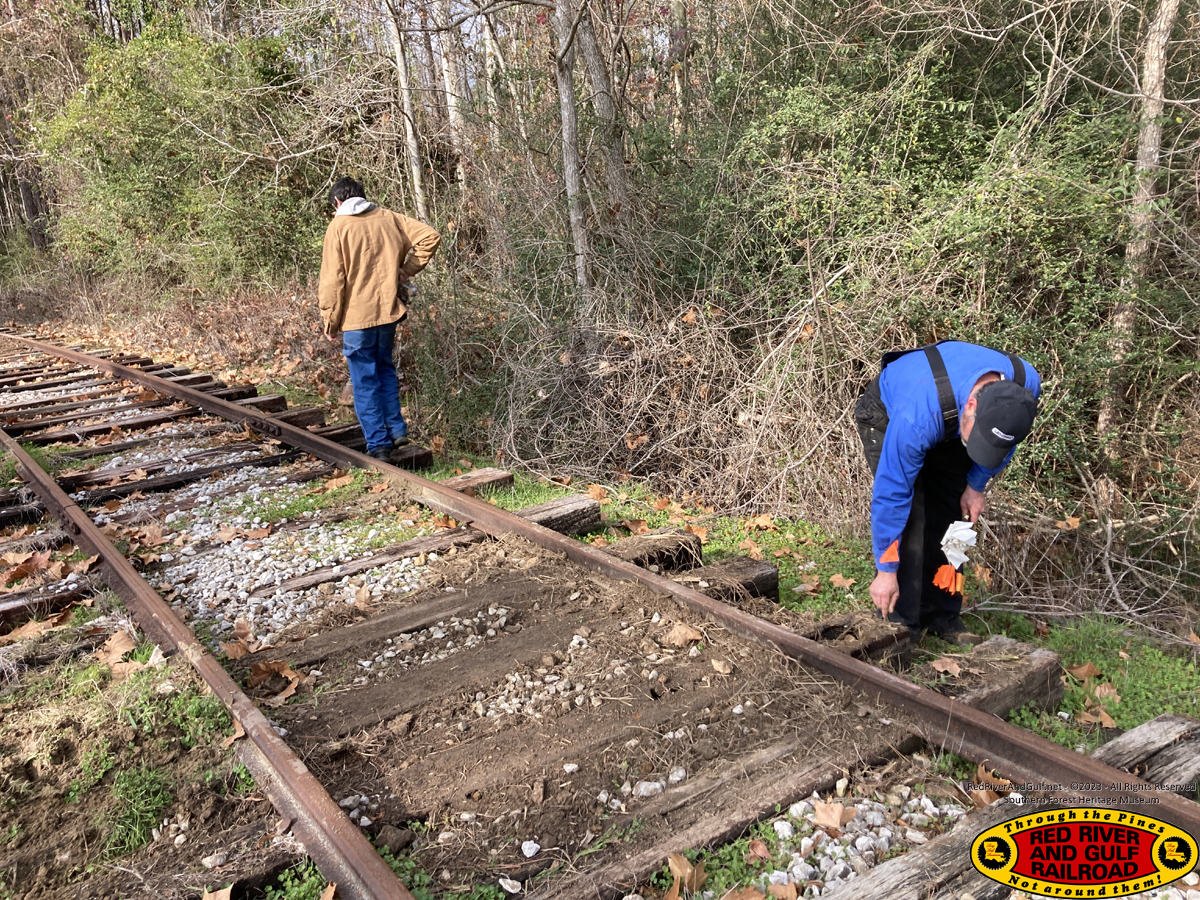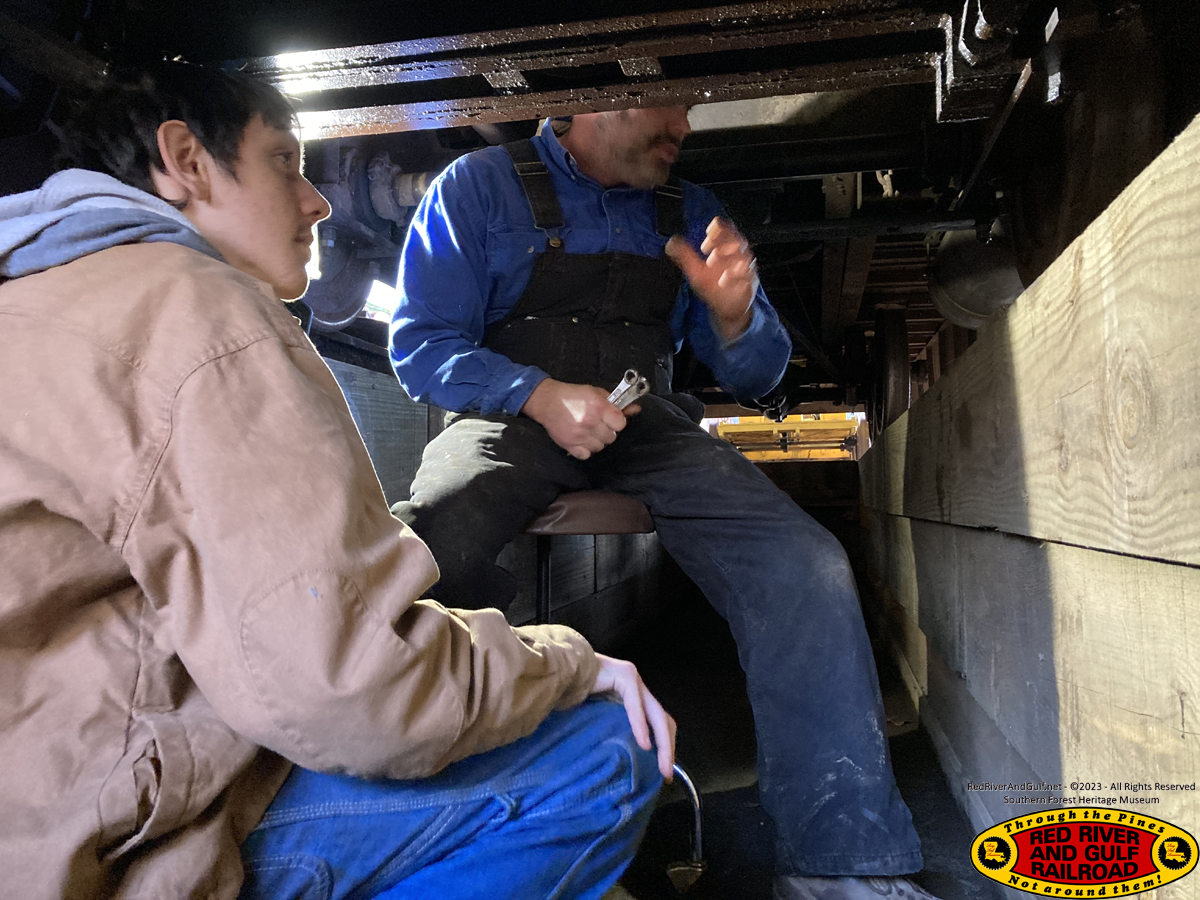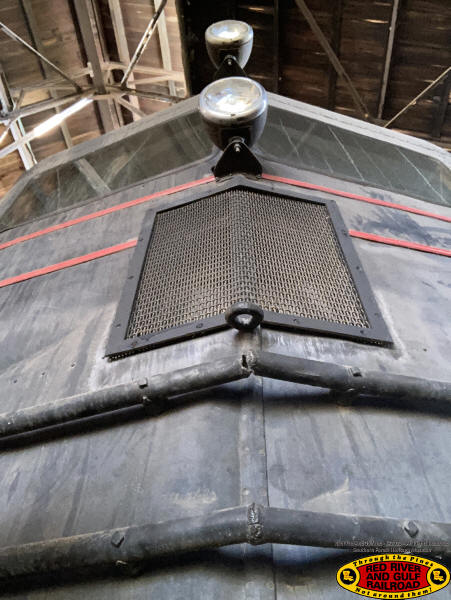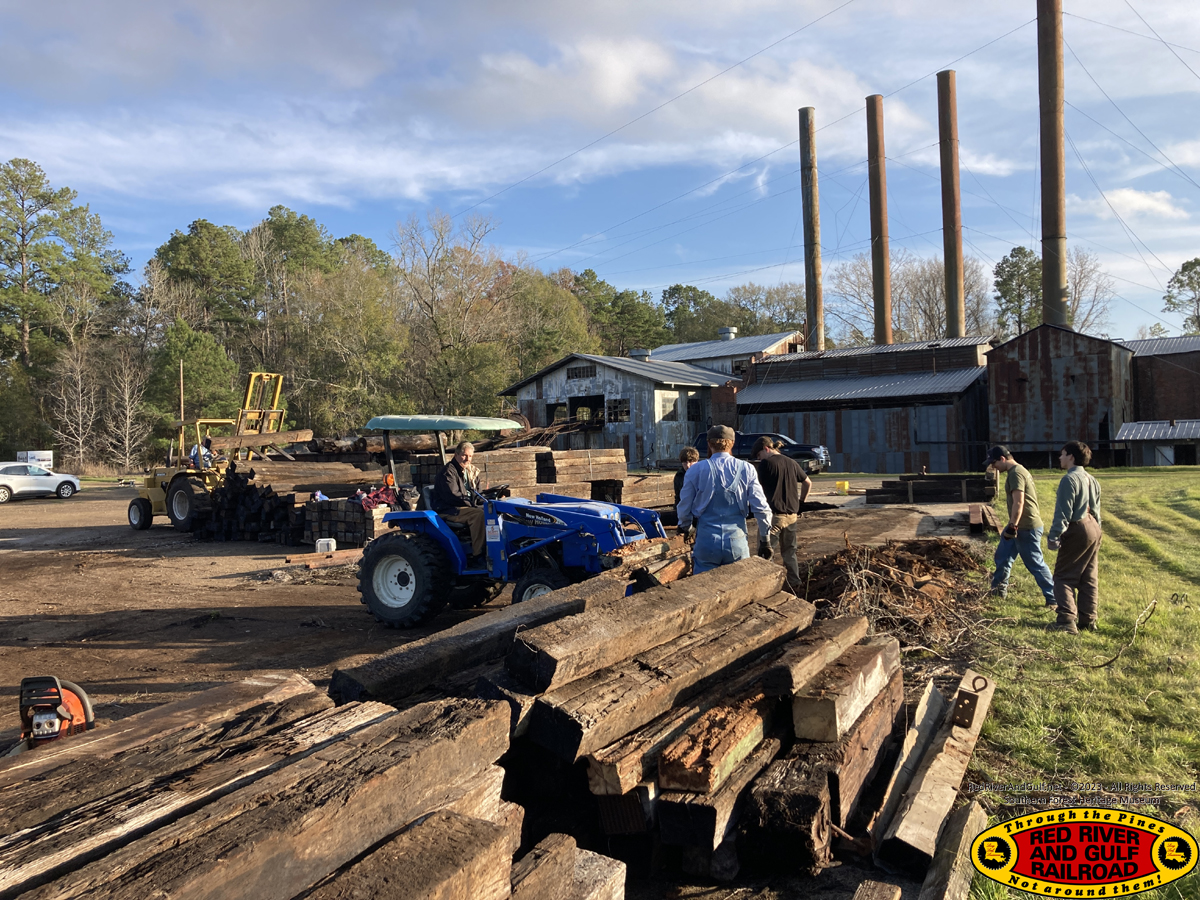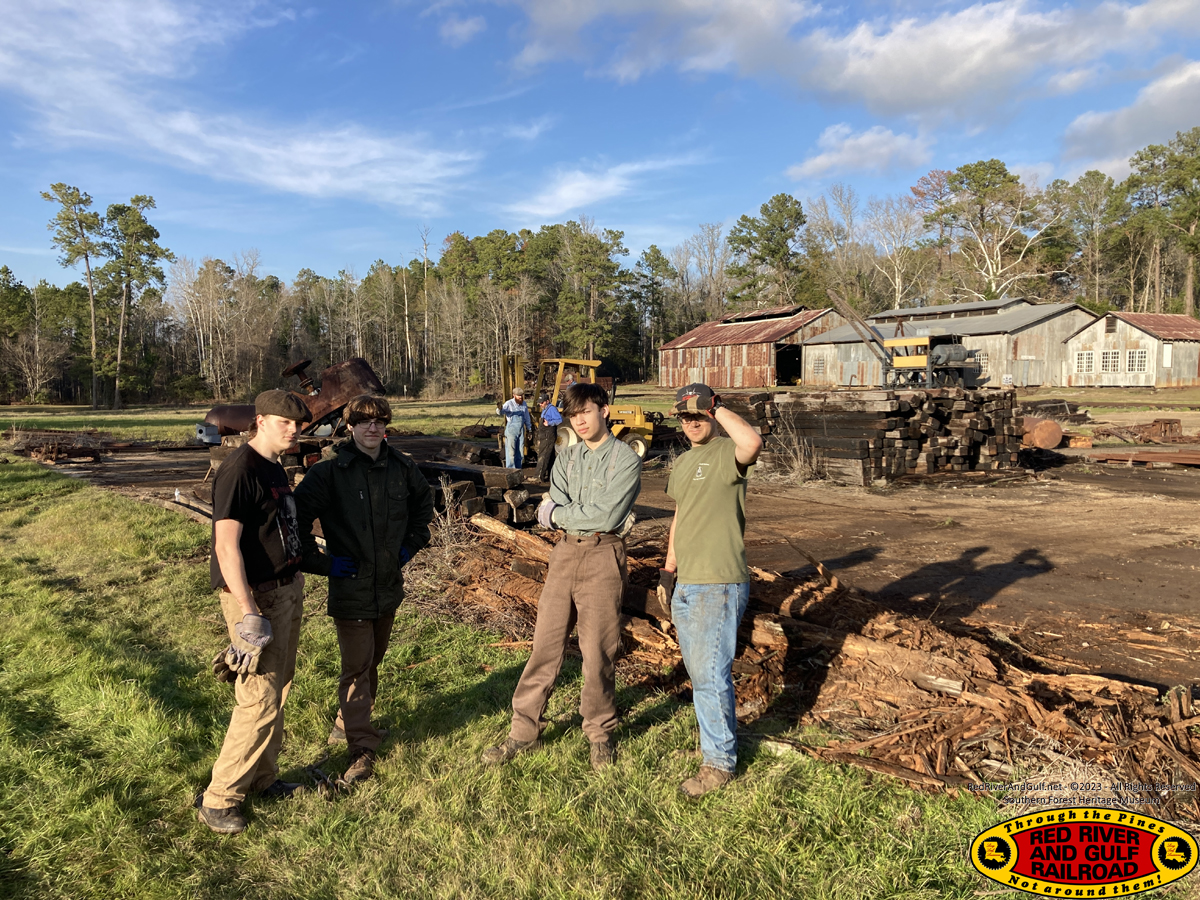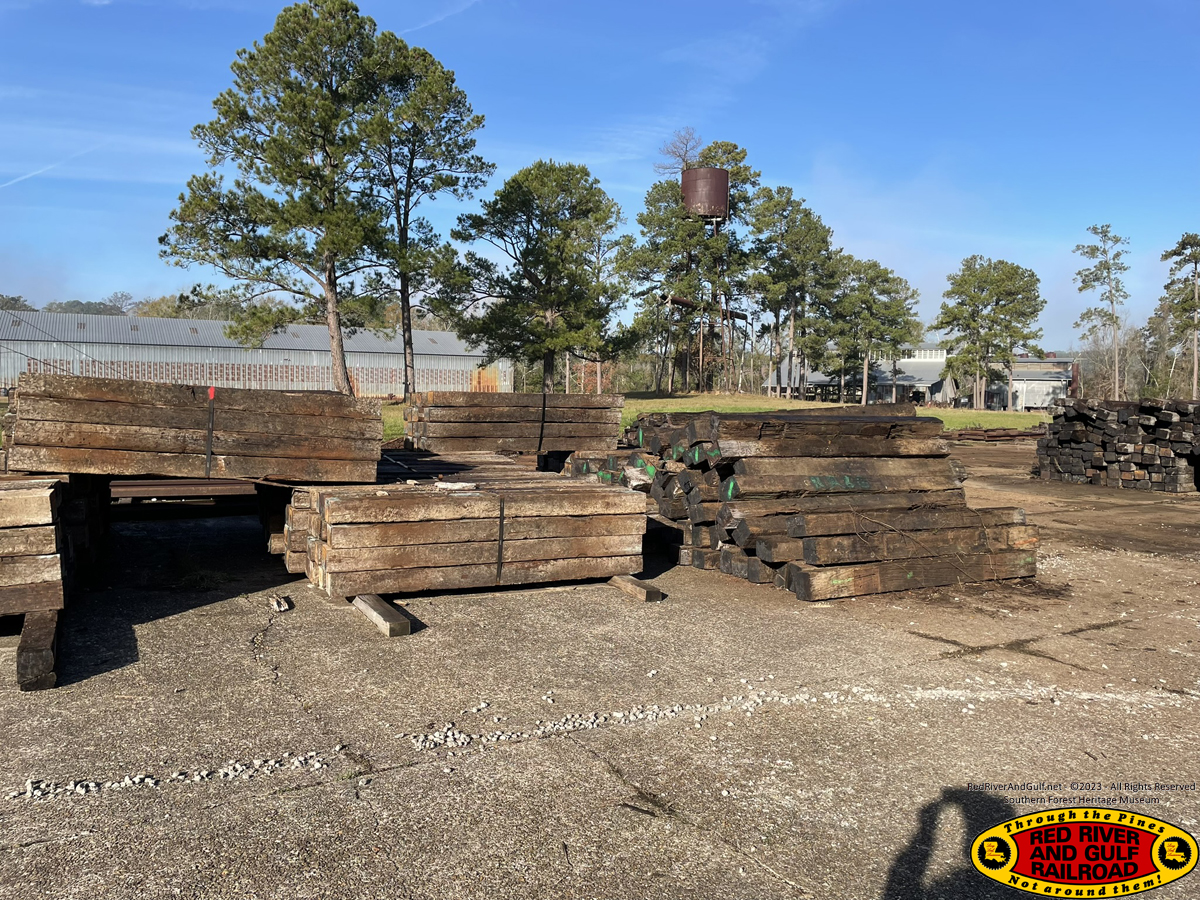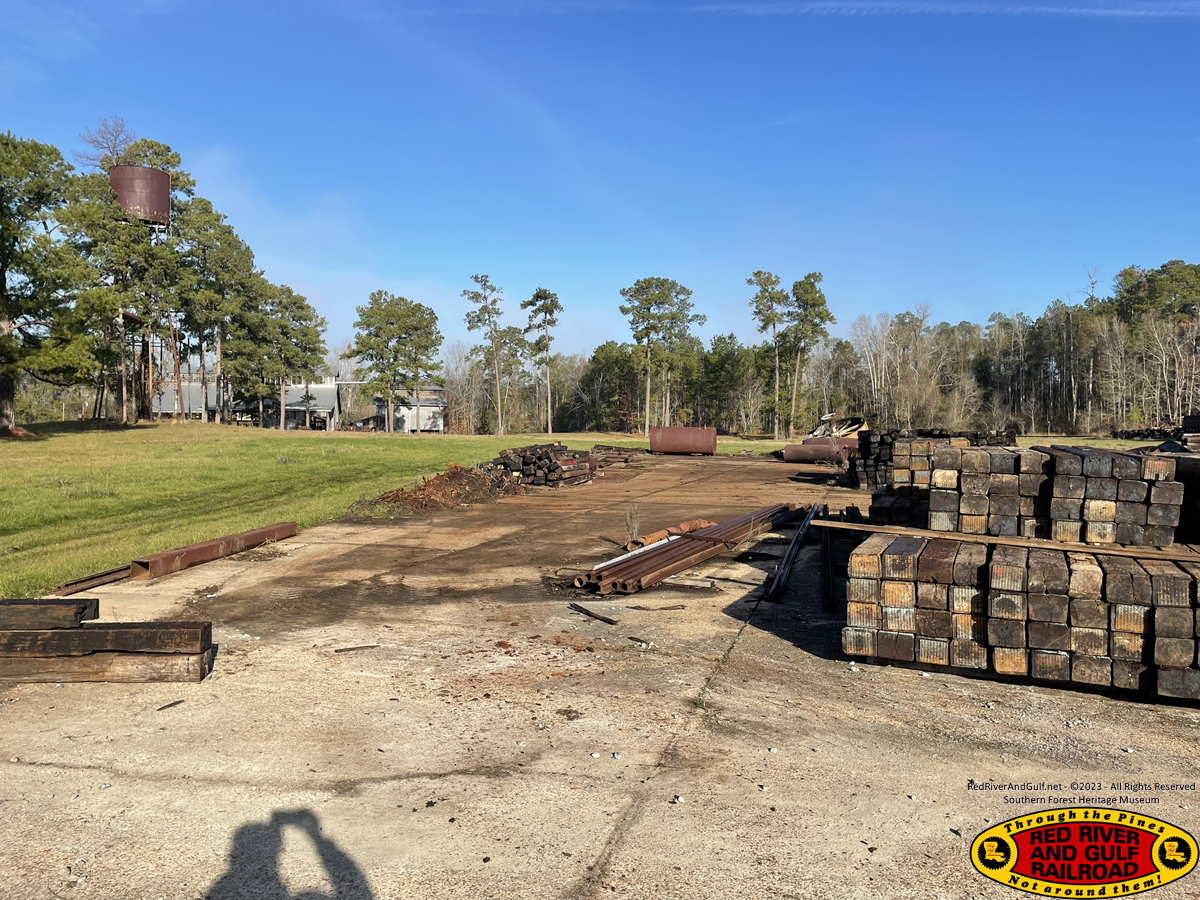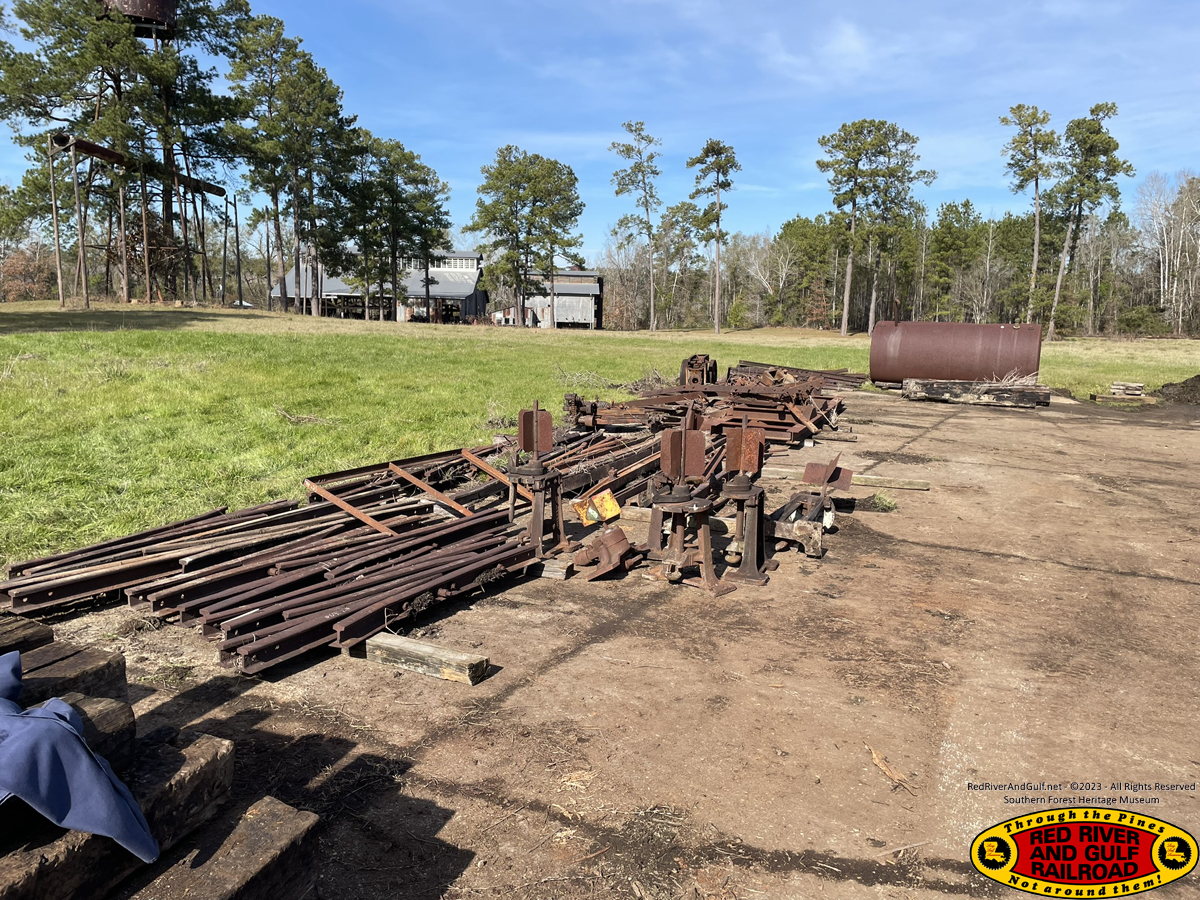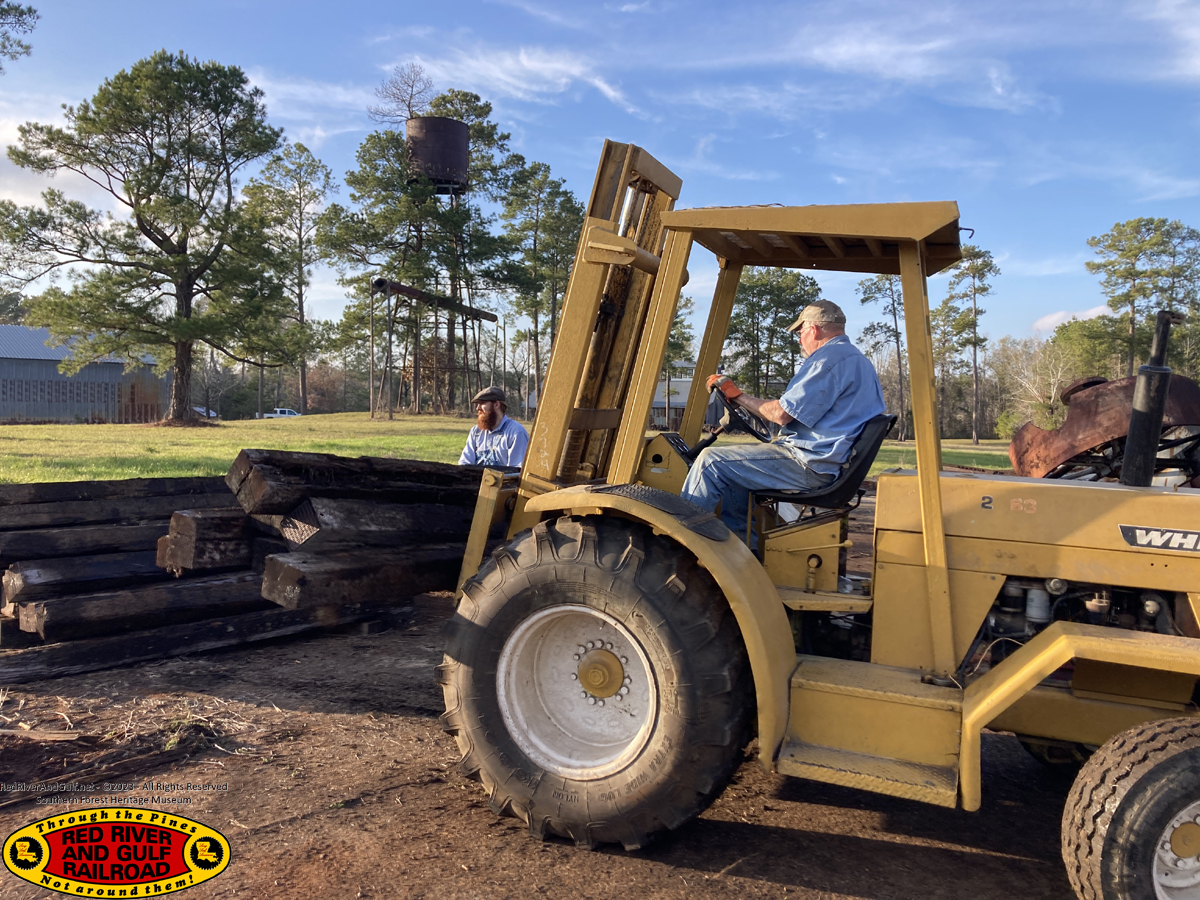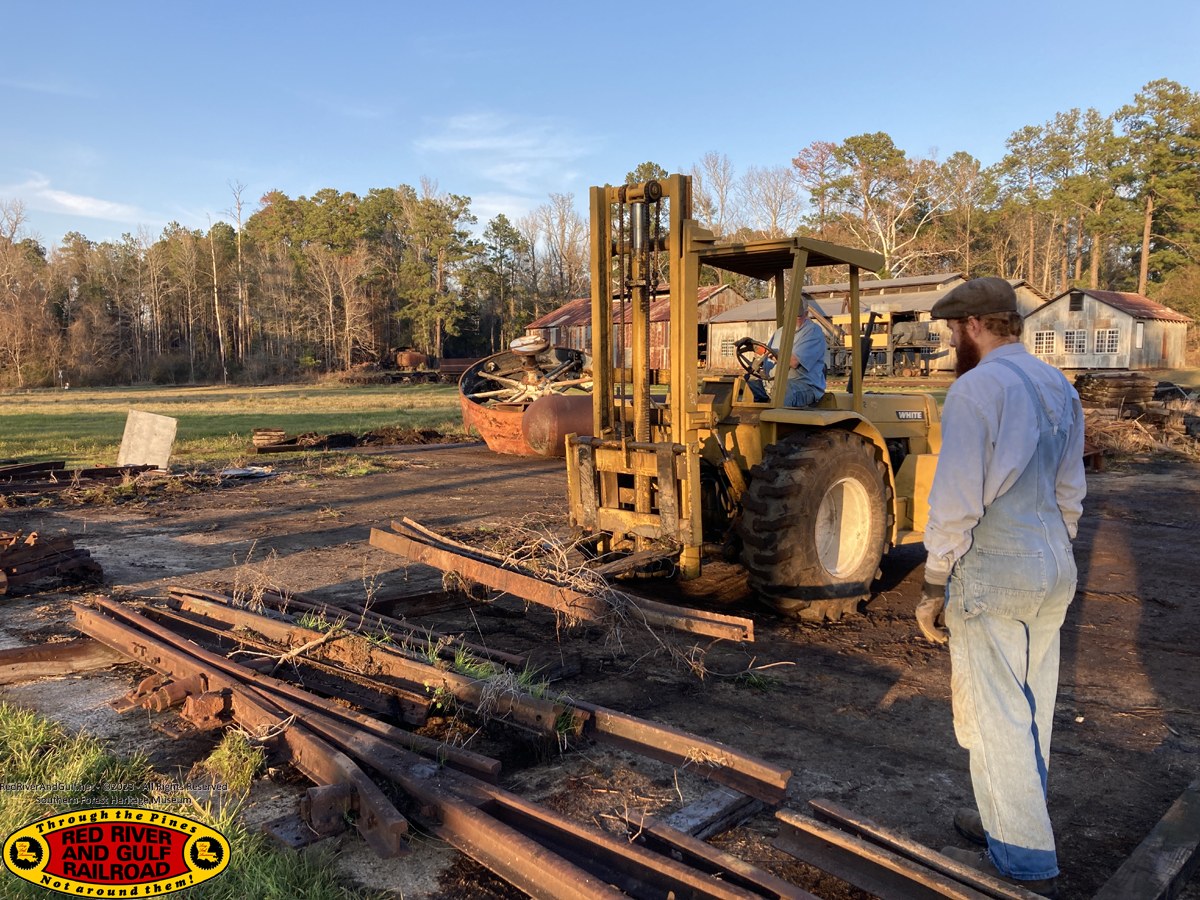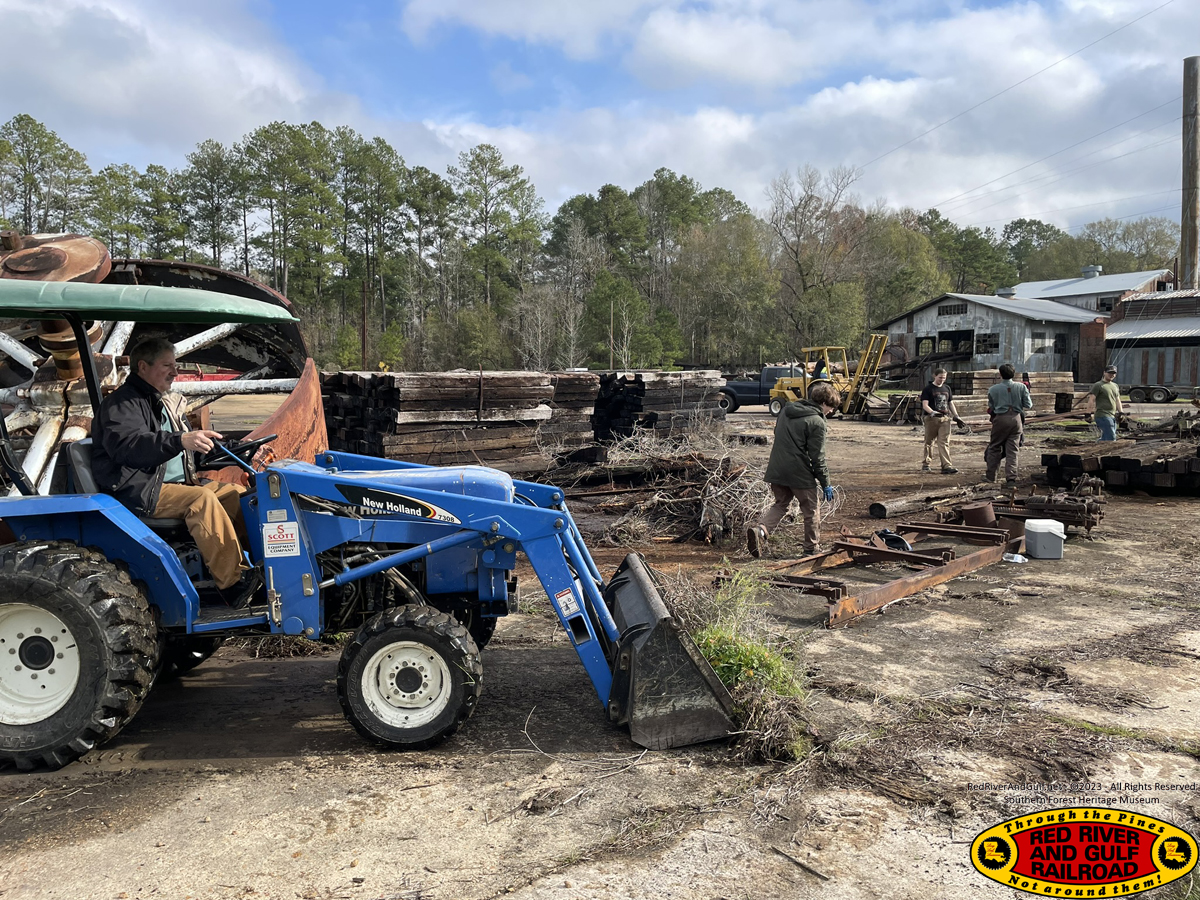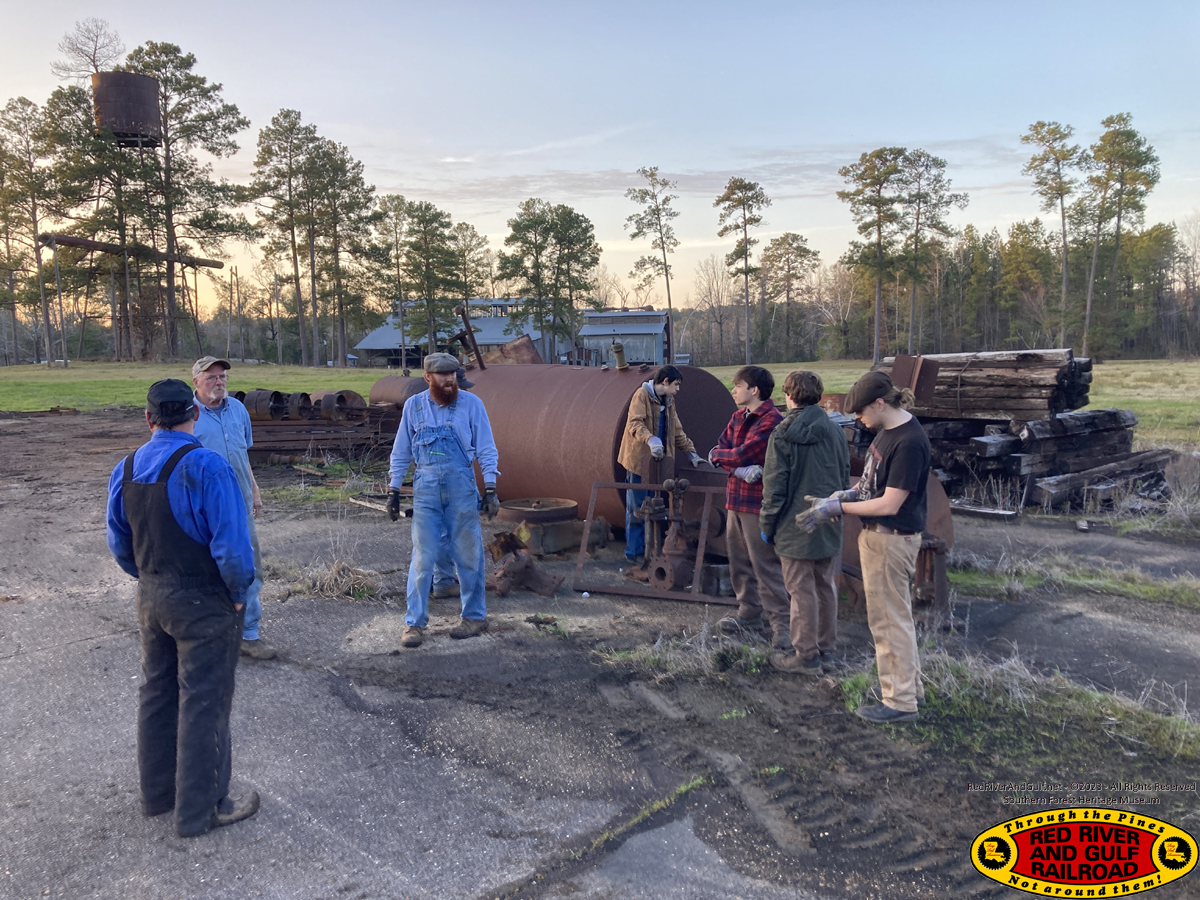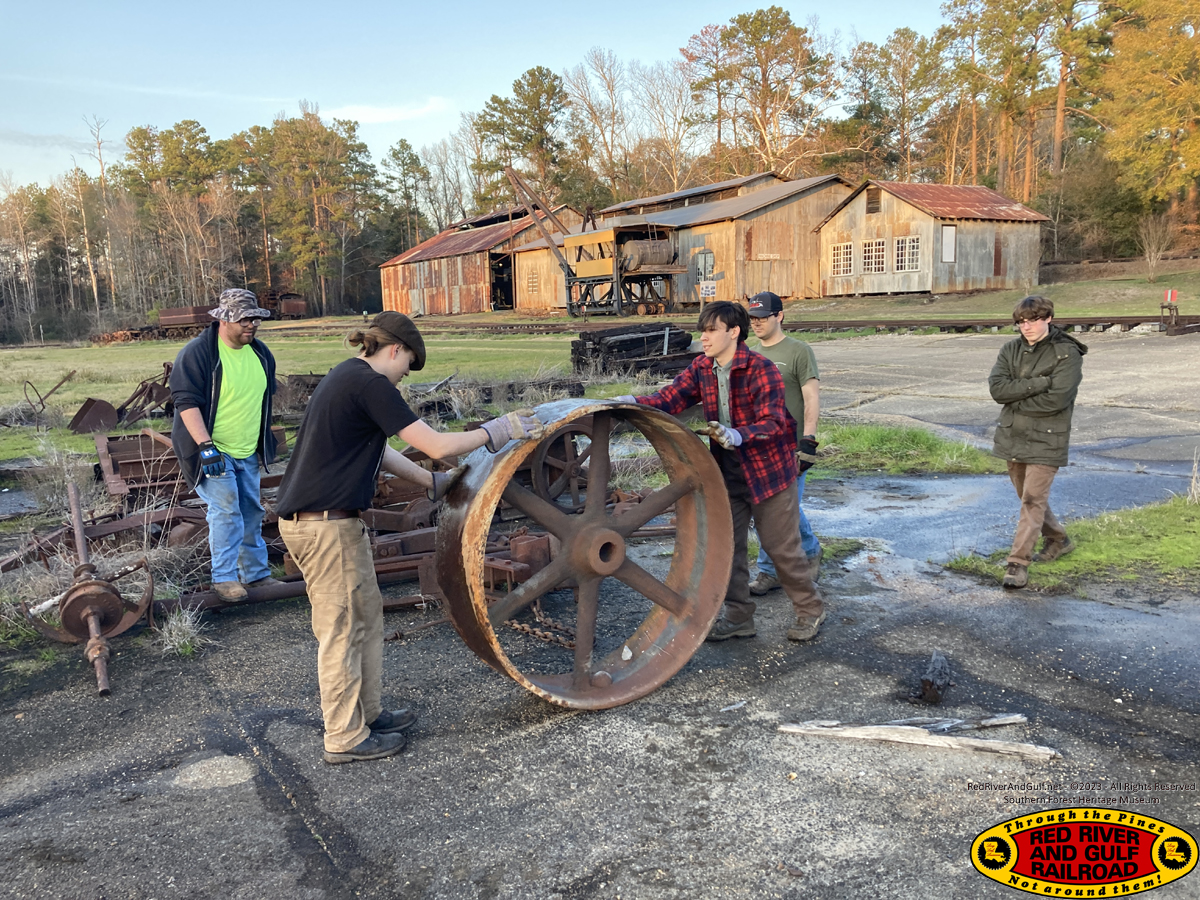|
Volunteers:
1. Jason R.
2. Joseph S.
3. David H. Sr.
4. Glen A.
5. Wimbley V.
6. Ben S.
7. Nick P.
8. Ayden S.
9. Clint L. Jr
10. Andrew A.
11. Angela A.
12. Joseph S.
13. Mike M.
14. Sam E.
15. Tucker B.
Accomplishments
1. Chimney rock for CCC cabin unloaded and sorted
2. M4 starter replaced
3. Cleaned and organized Saw Mill pad
4. Sorted tie stacks between railroad ties and landscape ties
5. Built “rock box” on Saw Mill pad
6. Inspected track & marked ties for replacement
Thank you to all of our
volunteers who came out and donated their time. We accomplished many of
our objectives for the weekend.
Saturday
Saturday began with the briefing in
the lodge kitchen. The objectives were reviewed, and all were
accomplished, save for painting M4’s roof. With temperatures well below
50 degrees and cloudy most of the day, it was not ideal conditions for
painting.
All volunteers fell in to knock the first objective of unloading chimney
brick. A stand-by fire watch cabin built by the Civilian Conservation
Corps in Winn Parish was moved to the museum this past week to become
home to an expanded sustainable forestry exhibit. These cabins were
stationed near fire watch towers throughout the state and this is one of
the last remaining. The cabin featured a stone-and-mortar foundation and
a mortared chimney made up of fire brick and native Louisiana rock. The
chimney brick was recovered during the cabin move and David Hearne made
two trips to bring it all back to the museum. The chimney pieces were
unloaded in three different piles so the chimney can be rebuilt in the
future when funding allows. The dirt and broken mortar chunks from this
operation were loaded into the tractor and used as ballast in various
points around the main loop track.
After the chimney unloading operation was complete, Wimbley, Nick, Ben,
Ayden, and Clint spread the newly deposited ballast into the needed
spaces on the main loop. Then the volunteers regroup on the Saw Mill
pad. The goal was a clean-up and organization of the pad to increase
needed storage space, allow access to various supplies and materials on
the pad previously inaccessible to equipment, and to improve the overall
functionality of the area.
Part of this effort included building a “rock box” or a “ballast bunker”
using old ties only good for landscape use (“landscape ties”). With Glen
on the tractor, and Joseph locating suitable pipe pieces, Glen, Tucker,
and Joseph drove down four pipes to hold the back wall of the box. Then
ties were stacked up to form a back wall and two side walls set at an
angle to the back. This allows for a backstop to collect rock instead of
spreading it all around the pad by the tractor. Joseph and Jason then
secured the box together with 2x4s, tie plates, and spikes. The result
is an effective tool to be efficient with our rock aggregate in the
future.
Throughout the day, Glen operated the tractor and David operated the
all-terrain forklift to sort and stack ties between railroad use and
landscape/museum projects, remove dirt, debris, rotten tie mulch, stack
useable ties, organize rail, switch points, switch frogs, and other
large items on the pad. Wimbley, Andrew, Ben, Nick, Clint, and Tucker
got their workout in by handling tie tongs, stacking and rolling ties,
shoveling dirt, mulch, and debris, loading up the tractor of old rotten
timbers, and getting the dirty work done. The end result is a night and
day difference on the pad. Tremendous usable hard-surface storage space
is now available, railroad materials/parts and large timbers are now
easily accessible, and the organization makes future projects easier to
source materials. By the end of Saturday, half the pad on the finished
lumber shed side was cleaned and organized. The landscape ties were
marked with red paint and “museum use” on both stacks and the railroad
ties were marked in green with “RR&G” on the front of the stack.
After lunch, Jason, Joseph, and Ayden inspected the main line to
Sandersville, the washout on this line, and the curve descending from
the Engine House to the Planer Mill on the main loop track. They flagged
ties for replacement on the curve. Additionally, they installed the new
starter on M4 that Mike M. procured shortly before Christmas. Joseph
reported that the M4 started right up with the new starter. They then
joined the rest of the volunteers on the pad with cleanup. Joseph also
used the all-terrain forklift to move several large tanks on the pad to
better locations.
Saturday was full of memorable moments. The all-terrain forklift gave
David fits in the early afternoon and he spent considerable time working
to fix the fuel solenoid. After much work, David got it repaired, and
the forklift worked well the rest of the weekend. A highlight was David
and Joe safely moving the very large flywheel from the Roy O. Martin
downtown Alexandria mill to a better spot on the pad. The flywheel looks
to be about 20 feet in diameter and Joseph’s “hold this paint can”
moment was one for the books.
Despite the dreary weather, Angela guided museum visitors throughout the
afternoon. Many of these folks had a fine view of the volunteers humming
away on the Saw Mill pad as they took in locomotive 106 at the Car
Knocker Shed.
Sunday
After Angela, Andrew, and Tucker
cleaned up the lodge kitchen, Sunday continued two objectives from
Saturday by continuing Saw Mill pad cleanup and railroad track
inspection. Andrew and David continued working with the tractor and
all-terrain forklift to clean up and organize the Machine Shop side of
the pad. Tucker and Angela inspected the main loop track from the road
crossing to the Machine Shop down to the Commissary. Flags were used to
mark tie replacements and notes made of track spots to work on. With the
track inspection complete, Angela and Tucker returned to the pad to
assist with the cleanup and organization. More loads of dirt, debris,
and rotten ties/timbers were hauled out.
The crew wrapped up shortly after noon and made the road for home after
picking everything up. Our next session is January 19-21, 2024, and we
hope you can join us.
-Tucker "Who Dat" Baker
RR&G
Chief Engineer
|
